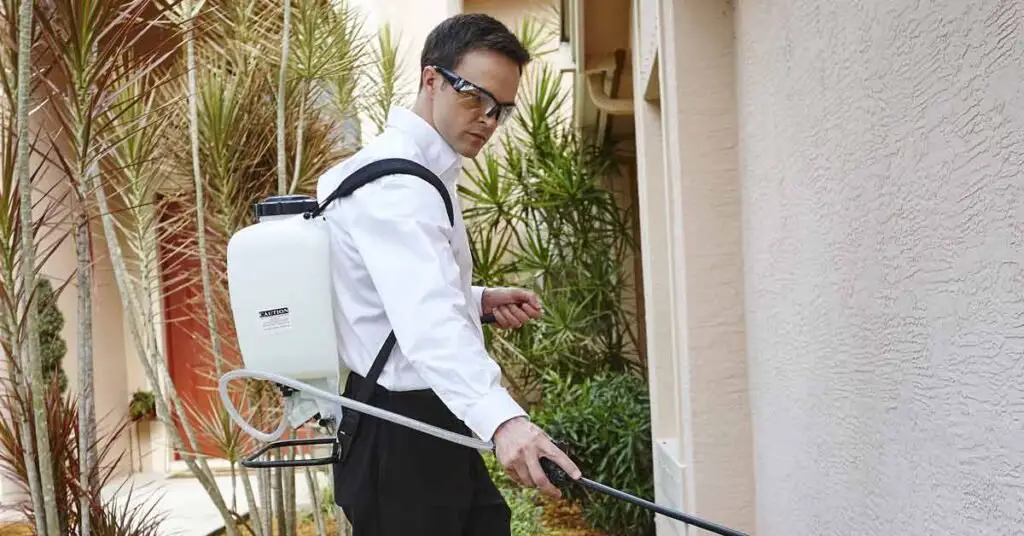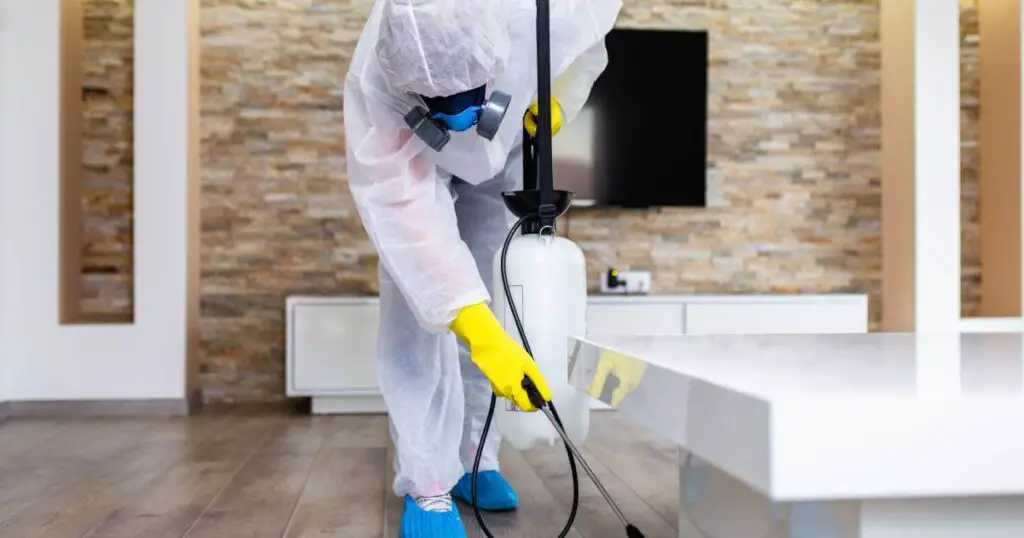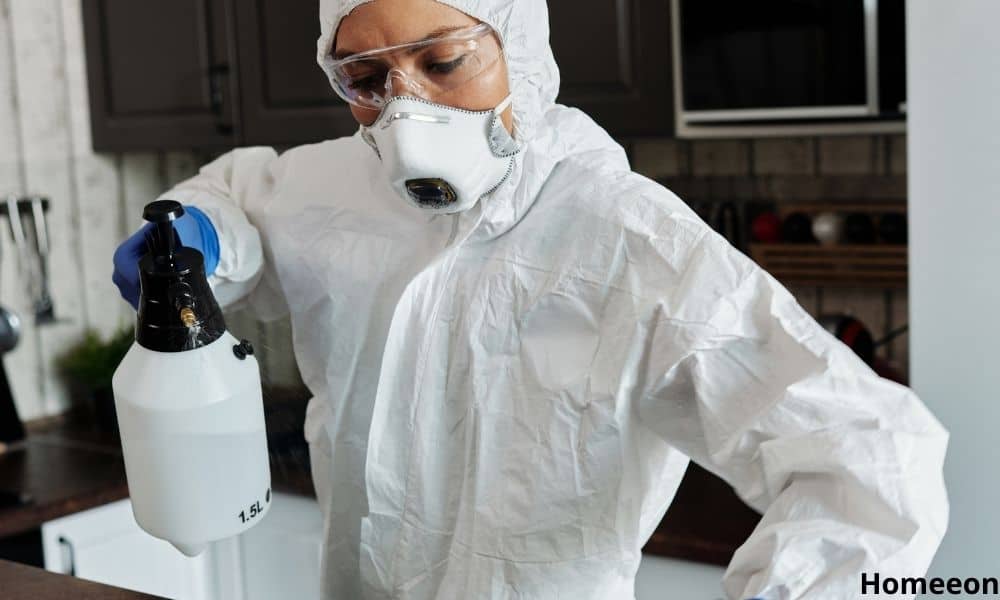Last Updated on August 2, 2023 By Emma W. Thomas
Yes, pest control is worth it. Effective methods like traps, baits, and sprays can eliminate pests, preventing property damage and health risks. Regular pest control reduces infestations and saves costs on repairs and medical bills.
Is Pest Control Worth It?
Despite its often upfront cost, pest control investment can provide extensive benefits. Its primary advantage lies in maintaining the safety and health of one’s residence or workspace. Pest related issues often lead to harmful disease transmission as they carry germs and bacteria. Hiring professional pest control services minimizes this risk and safeguards human health.
Economic Implications
The financial implications of pest control should also be noted. Without professional intervention, pests can cause severe property damage that incurs considerable repair costs. These expenses can easily supersede the initial investment in pest control. Therefore, although it incurs an upfront cost, professional pest control could potentially save a substantial amount of money in the long run.
Environmental Consequences
From an environmental perspective, pest control provides significant benefits. Uncontrolled pests can disrupt local ecosystems and biodiversity. Moreover, professional services often employ eco-friendly techniques and products that minimize the environmental impact.
Mental and Emotional Peace
Last but not least, effective pest control offers profound mental and emotional benefits. The knowledge that the residence or workspace is free from pest infestation contributes to a sense of peace and reduces stress.
| Benefits of Pest Control |
|---|
| 1. Safeguards human health |
| 2. Protects property and saves money in the long run |
| 3. Preserves local ecosystems |
| 4. Provides mental and emotional peace |
So, despite the possible initial financial outlay, pest control is very much worth it. Not only does it keep residents safe from probable health hazards, but it also saves money, protects the environment, and provides peace of mind. While considering pest control, the cost should be regarded as a long-term investment into safety, health, and peace of mind.
What Are The Methods Used In Pest Control?

There are four main methods used in pest control depending on the pest size. They include:
Physical Method
It is a natural method used to control pests without the administration of chemicals. Pests are detected using physical methods and are evacuated. The method is mostly used for large pests such as rodents. It uses security men, traps, alarms, and caricatures to eradicate pests, among other combat techniques. This method poses no harm to either the environment or property. Additionally, it is less expensive since only a few traps are used and, in some cases, none.
Chemical Method
This method involves the use of chemical substances to get rid of pests from one’s home. The chemicals used are surfactants which are very poisonous and toxic. They are usually mixed with water before they are sprayed in an infested area. This method is used to control small pests such as lice and bedbugs in the case of households. On the farm, they control pests like aphids, thrips, and armyworms. Such pests multiply uncontrollably since they are tiny and mostly go unnoticed. Despite their small sizes, they can be very destructive. Chemicals used in such cases are known as insecticides or pesticides.
The method has some disadvantages, such as retaining the chemicals used in the crops. Such crops become a health hazard to the consumers whether human or animal. The cost of chemicals used is quite high hence increasing the food production cost. It is also labor intensive since one has to carry around the pesticides during spraying. This method is also not environmentally friendly since the chemicals may get blown away by the wind to undesired places leading to air pollution.
Cultural Methods
It is also among the natural method of pest control, just like the physical method. It involves using some techniques and methodologies to create unfavorable conditions for pests’ invasion. This method is mostly used in farming. An example of such a condition is land preparation which involves weeding and seed treatment. It is one of the easiest methods, and it is cost-effective with minimal effects on the environment or the consumers of farm products.
Biological Method
It is also known as the integrated method as it involves a combination of more than one pest control method. It involves using a natural enemy of the given pest to prey on them. For example, in a household, one can use a cat to prey on rats or dogs to prey on squirrels and other rodents. One advantage of this method is that it is environmentally friendly, cheap, and effective.
What Are The Benefits Of Pest Control?
There are different types of pests such as cockroaches, termites, rats, mosquitoes, spiders, and others. Some pests can be harmful to one’s health and destructive to property. Controlling pests come with the following benefits;
Pest control reduces the risks of associated diseases and illnesses. A single bite by some pests such as spiders can be fatal. Others, such as mosquitoes, are known to cause malaria. Failure to control pets can have adverse effects in a family setup. The best option is getting assistance from exterminators from pest control services who can tackle any cases of pest invasion. They decide on the best method to use to detect and eliminate all types of pests.
Pest control also helps in reducing associated allergies and itching. Most pest bites cause uncontrollable itching and allergies. Controlling pests protects one’s family from such experiences. Bedbugs, fleas, mosquitoes, and spiders are the most common pests that cause itching and allergies. Any trace of these pests should be reported to pest control professionals or handled immediately.
Controlling pests also ensures the safety of one’s property and facility. For instance, in a business setup, shutting down a business premise because of an infestation would be the worst thing to happen. Establishing preventative pest control measures ensures the continuity of one’s activities. Some pests such as termites can cause severe damage to one’s property. Therefore, one should be on the lookout for them.
Additionally, pest control provides one with peace of mind. Living in a clean and pest-free environment creates a peaceful feeling. Knowing one’s premise of being free of pests enables one to focus their mind and energy on more important matters. Such an environment increases one’s productivity.
What Is The Difference Between Pest Control Service Providers And Exterminators?
Pest control refers to managing pests related problems by keeping them away from one’s home while still protecting the surrounding environment. On the other hand, exterminators rely on pesticides and other chemicals to eliminate unwanted pests. Exterminators’ main aim is to eliminate pests without putting any consideration into the environment. They use chemicals even in unnecessary cases, whereas pest controllers study the pest situation first, such as the reason for their invasion. Pest control professionals only use chemicals when necessary, and being the only effective option. They also use less toxic chemicals for humans and pets. Their application is very tactical to prevent accidents involving the applied chemicals.
Another difference is that pest control services provide long-term solutions other than just eliminating pests. They are more educated on methods used to deal with different types of pests. They understand that treatment protocols for eliminating a certain pest are different from another. For example, dealing with bedbugs is very much different from mosquitoes. They also understand that every pest has its reason for being present, and a different approach should be used.
On the other hand, exterminators have only one end goal, which is eliminating the pest. Whether short-term or long-term is not in their mind, they do not consider the type or amount of chemical applied provided the pests disappear with a quick fix.
What Should One Do After Pest Control?

After a pest control exercise, the most important thing is to clean off the chemicals and seal off any possible entry points of pests. One should ensure the safety of their family and pets since the exercise may involve chemical sprays. The following are some simple guidelines to consider after a pest control exercise.
1. Cleaning the house after pest control chemicals; one can clean the house after the pest control process though not in the usual way. For example, one should avoid cleaning the perimeter areas of a room and around the edges of the house. The reason is that the applied chemicals serve as invisible barriers for pests, and cleaning them could let in more pests. Therefore, light cleaning should be administered within the first four to five days after the pest control exercise.
2. Checking and ensuring that food was not contaminated in the process. Most pest control service providers do not spray their chemicals in areas near food storage. However, for one to be safe, food and other edibles should be stored away in lockable cabinets and cupboards before the pest control process. After the process, one can carefully wipe the surfaces where food might touch to ensure food safety.
3. The other thing is to look at the pet’s health since they may contact the chemicals used. They may portray some symptoms like burning eyes, persistent coughs, breathing difficulties, and changes in heart rates. These symptoms are rare since most in-home pesticides are not as harmful to humans and pets. However, one should ensure the pets are safe.
4. Repairing cracks and openings that can act as entry points of pests. It is one of the most important things to do after a pest control exercise. Eliminating any access point of entry by pests prevents future infestations. One should pay attention to areas like cracks, house gaps and holes, vents opening areas around pipes, and the spaces between floors and doors. Addressing such areas after treatment prevents the reintroduction of pests in one’s home.
Other minor activities should be carried out after the exercise, such as checking the furniture and clothing to avoid spreading the pests. For example, in a bed bug infestation, one should not move clothing and furniture to encourage their spread. One should also discard any wet papers and trash after a pest control exercise. The reason is, trash attracts rodents and insects. Leaving them unattended may lead to re-infestation.
Conclusion
Pest control is very worth it. Whether in a home setting, business premises, or a farm. This process helps to prevent associated damages resulting from pests. Other than physical property damage, pests also cause illnesses and diseases such as malaria by mosquitoes. It is therefore important for one to carry out preventive pest control. With this, one will avoid extra costs that result from repairing damages caused by pests.
References:
https://www.thisoldhouse.com/pest-control/reviews/is-pest-control-worth-it
https://arizonapestsolutions.com/pest-control-methods/
Emma is a graduate of Domestic Science or Family and Consumer Sciences (Home Economics) from the University of Wisconsin. She has 7 years of experience Working with the strategic section of BestBuy and now writing full-time for Homeeon.
From Managing the Home, Interiors, Cleaning, and Exteriors to Gardening and everything about Making A Home Liveable – is her passion and this Homeeon is the result of this.
Emma loves decorating her home with the best stuff found online. She cares about quality over anything and writes reviews about them here in Homeeon. Get in touch with her over Pinterest.
Keep reading her blogs.
